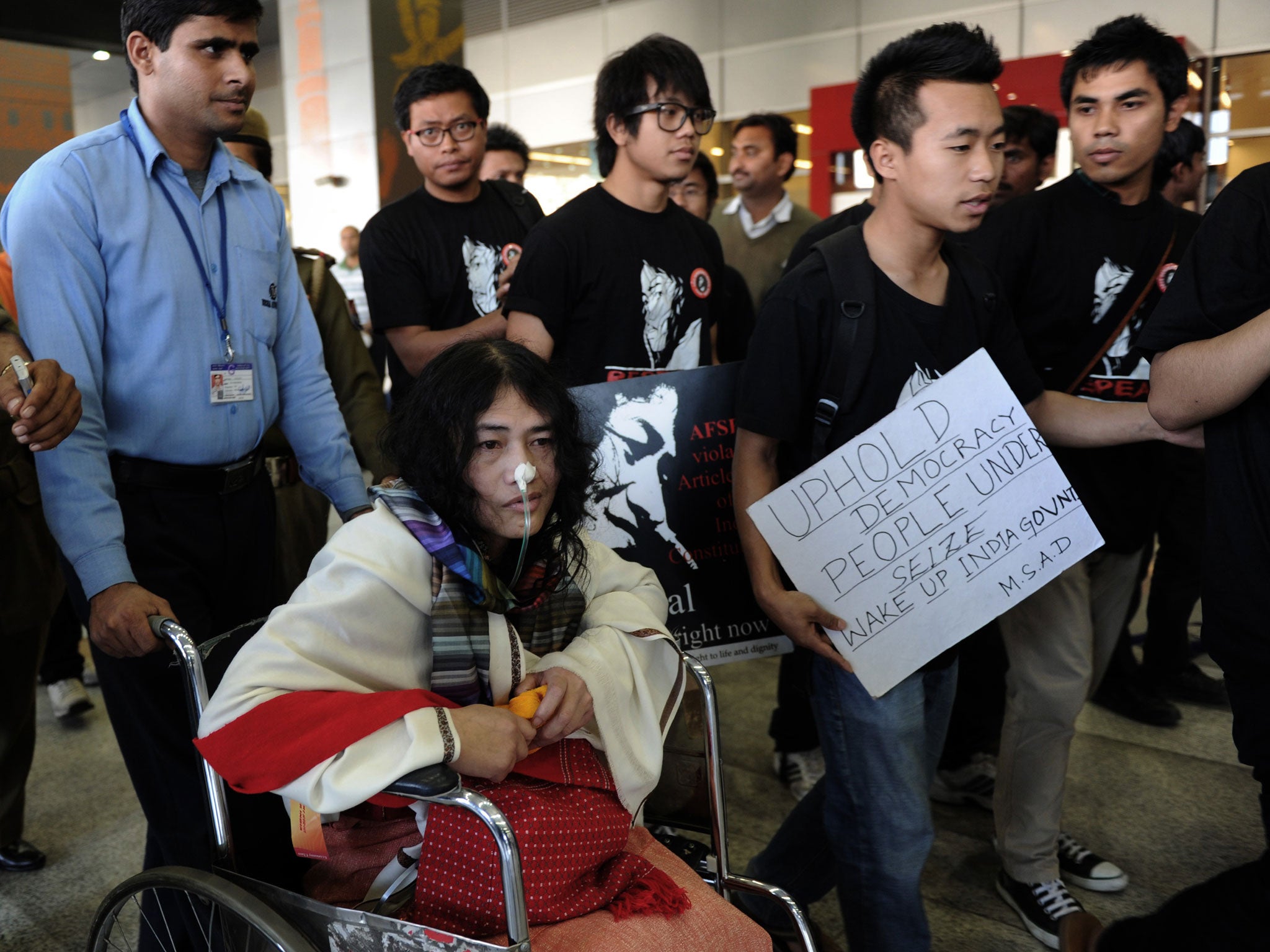World's longest running hunger striker Irom Sharmila heads to court over 'suicide' charges
41-year-old launched her fast in 2000 to protest over the killing of a group of civilians by paramilitary forces

Your support helps us to tell the story
From reproductive rights to climate change to Big Tech, The Independent is on the ground when the story is developing. Whether it's investigating the financials of Elon Musk's pro-Trump PAC or producing our latest documentary, 'The A Word', which shines a light on the American women fighting for reproductive rights, we know how important it is to parse out the facts from the messaging.
At such a critical moment in US history, we need reporters on the ground. Your donation allows us to keep sending journalists to speak to both sides of the story.
The Independent is trusted by Americans across the entire political spectrum. And unlike many other quality news outlets, we choose not to lock Americans out of our reporting and analysis with paywalls. We believe quality journalism should be available to everyone, paid for by those who can afford it.
Your support makes all the difference.Irom Sharmila has not eaten a meal for more than 12 years. Her hunger strike, aimed at stopping the bloody conflict between militants and the state, is the world’s longest.
She faces a court appearance later this month “for attempting to commit suicide”. Ms Sharmila has denied the charges against her saying, “I am protesting by non-violence at my best level”.
The 41-year-old started her fast on 3 November 2000, a day after 10 people, waiting at a bus stop in the town of Malom, Manipur, were shot dead by paramilitary forces.
Ms Sharmila, the youngest of five brothers and four sisters, was deeply disturbed by the killings. The following day she spoke with her mother and – having asked for her blessing – announced that she was launching a fast. She was arrested for the first time soon after. that
Three times a day, for 12 years, nurses have poured a liquefied mixture of vitamins, carbohydrates, proteins and laxatives into a plastic feeding-tube through her nose. Her hospital ward has been converted into a jail.
Her fast has caused her to stop menstruating, while some reports say her internal organs have been damaged.
Ms Sharmila’s hope is to get the government to repeal the Armed Forces Special Powers Act, a draconian piece of legislation that the federal authorities started applying to India’s seven “disturbed” north-eastern states in 1958. The act gives the armed forces the right to arrest people and enter any building without a warrant and “fire upon or otherwise use force, even to the causing of death, against any person who is acting in contravention of any law”.
Join our commenting forum
Join thought-provoking conversations, follow other Independent readers and see their replies
Comments